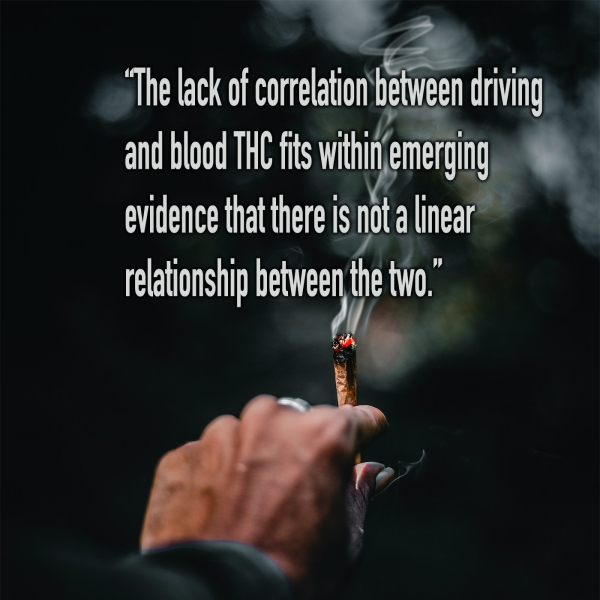THC Blood Levels Unrelated to Driving Performance
NORML shared an important study “Cannabis and driving in older adults,” that appears in JAMA Network Open. Additional information is available from the NORML Fact Sheet, ‘Marijuana and Psychomotor Performance’ and there are other studies showing linked below.
Toronto, Canada The presence of THC in blood is not predictive of detriments in psychomotor performance, according to driving simulator data published in the journal JAMA Network Open.
Researchers affiliated with the University of Toronto assessed subjects’ simulated driving performance at baseline and then again 30 and 180 minutes after smoking cannabis. Participants were between the ages of 65 and 79 years old and smoked cannabis (mean THC potency: 19 percent) ad libitum prior to driving.
Subjects exhibited “small changes in SDLP [weaving]” 30 minutes after cannabis inhalation. Investigators described these changes as less pronounced than those associated with drivers with a BAC below 0.05 percent.
Consistent with the results of prior studies, participants decreased their speed after smoking and were more likely to self-assess their performance as “impaired.” Cannabis use did not impact participants’ reaction times.
Subjects’ simulated driving performance returned to baseline within three hours.
The study’s authors concluded: “The purpose of the present study was to investigate the association between cannabis and driving and blood THC levels in older adults. … There was no correlation between blood THC concentration and SDLP [standard deviation in lateral positioning] or MS [mean speed]. … The lack of correlation between driving and blood THC fits within emerging evidence that there is not a linear relationship between the two.”
That conclusion is consistent with numerous studies reporting that neither the detection of THC nor its metabolites in blood and/or other bodily fluids is predictive of impaired driving performance. As a result, NORML has long opposed the imposition of per se THC limits for motorists and has alternatively called for the expanded use of mobile performance technology like DRUID.
EDITOR’S NOTE: This was a study of older adults who can be presumed to have more driving experience AND more experience using cannabis. Both of those factors could also lead to better performance. Always best to drive sober!



